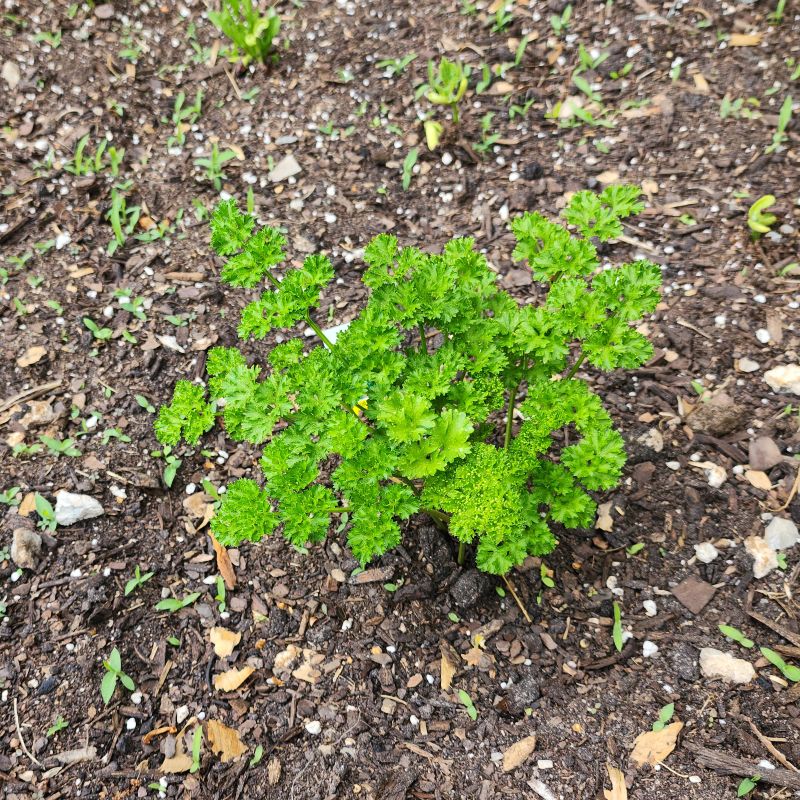
Harvest Time
80 days
Difficulty
easy
Growing Methods
Container
Raised Bed
USDA Hardiness Zones
3
4
5
6
7
8
9
About Parsley
Parsley is a biennial plant typically grown as an annual, native to the Mediterranean region with a fresh, slightly peppery flavor profile. This versatile herb comes in three main varieties: flat-leaf (Italian), curly, and Hamburg (root) parsley, each with distinct culinary applications. Flat-leaf parsley delivers the most robust flavor with broad, dark green leaves containing higher concentrations of essential oils, while curly parsley has a milder taste and excels as a garnish. The plant grows 12-18 inches tall with bright green compound leaves and produces small white flowers in its second year if allowed to bolt.
General Care Instructions
Sunlight Requirements
- • Requires 6-8 hours of direct sunlight for optimal growth and flavor
- • Tolerates partial shade (4-6 hours of direct sun)
- • Morning sun with afternoon shade works well in hot climates
- • Insufficient light leads to leggy growth and reduced essential oils
Temperature Range
- • Ideal growing temperature range: 70-90°F (21-32°C)
- • Protect from temperatures below 50°F (10°C)
- • Will suffer damage or die when exposed to frost
- • Growth slows below 60°F (15°C) and above 95°F (35°C)
- • Optimal soil temperature for germination: 70-85°F (21-29°C)
Fertilizer Requirements
- • Container plants: Half-strength balanced liquid fertilizer every 2-3 weeks
- • Garden plants: Balanced organic fertilizer monthly
- • Begin fertilizing when plants are 4-6 inches tall
- • Reduce feeding in late season to prevent excessive leaf growth
- • Signs of deficiency: yellowing leaves, stunted growth, pale foliage
- • Avoid high-nitrogen fertilizers which reduce essential oil content
Watering Needs
Newly planted
- • Keep soil consistently moist but not soggy
- • Water when top half-inch of soil feels dry
- • Avoid overhead watering to prevent disease
Establishing plants
- • Container plants: Check daily; water when top inch of soil is dry
- • Garden/raised beds: Deep watering 1-2 times weekly
- • More frequent watering during hot, dry periods
Established plants
- • Continue consistent moisture for best flavor
- • Reduce watering slightly during cooler weather
- • Never allow soil to completely dry out